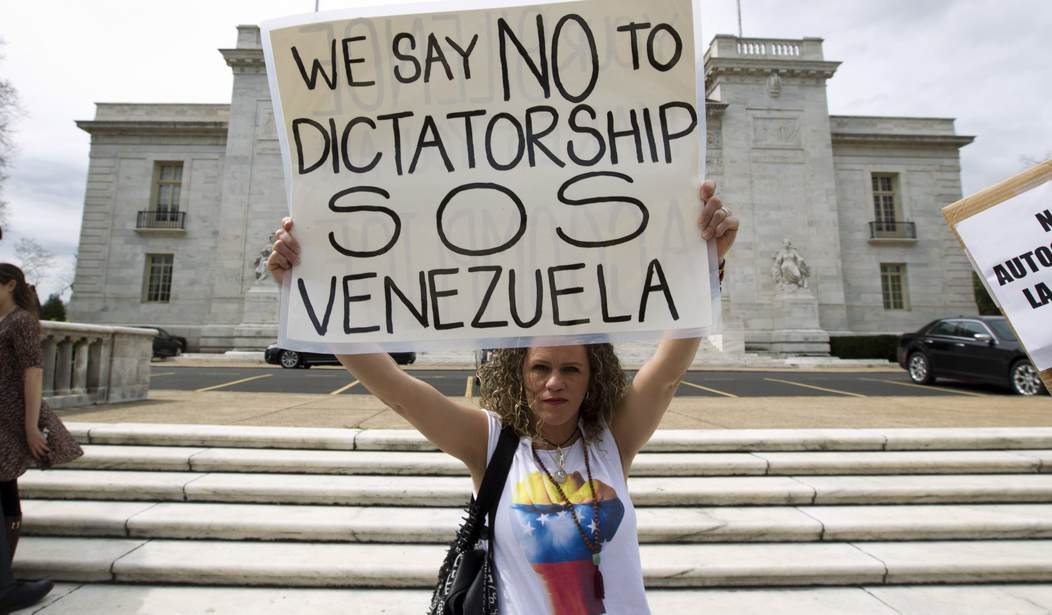At least 29 people have been killed in escalating violence in Venezuela with the number believed to be much higher. The Miami Herald reports, “The tally does not include half a dozen victims who remain unidentified or dozens of others shot, wounded and fighting to survive.”
Death comes at night in many of Caracas’ neighborhoods, when people protest against the Nicolas Maduro regime by banging on pots and pans. Soldiers and paramilitary gunmen appear suddenly, hunting opposition activists they call “the squalid ones.”
The beleaguered Maduro regime has answered the challenge posed by Juan Guaidó’s becoming interim president of Venezuela by stepping up attacks on opponents, green-lighting operations that increase the number of dead day by day, according to human rights organizations.
It appears that President Maduro is not going to go easily. And that has much of the world worried:
The violence has started to trigger alarms abroad. U.N. Secretary General António Guterres Thursday called for a “transparent and independent” investigation of the protesters’ deaths.
That same day, the Inter-American Commission on Human Rights also expressed its concerns, even though the number of dead was lower at the time. The commission “is closely following the violent events in Venezuela, in the context of today’s protests, which have already left at least 16 dead, dozens of injured and arrests,” it wrote on its Twitter account.
Ponce and other groups that have studied the violence in Venezuela say the deaths are the result of government repression as well as extrajudicial executions during crack downs on the growing social unrest.
Such executions were first identified as part of a pattern during anti government protests in 2014, and by 2017 they had become a systematic part of the repression, Ponce said.
The violence is out of sight of the press because the attacks by government security forces and Maduro’s private thugs occur in poor neighborhoods — formerly strongholds for the Chavez/Maduro political machine:
Two clear trends have emerged from the deaths in recent days. One is that the repression begins when protesters start banging their pots and pans from inside their homes.
Those kinds of protests usually start after sundown in less well-off Caracas neighborhoods once bastions of support for Chavismo.
“The security forces and the colectivos (paramilitary gangs that support the regime) arrive quickly and fire tear gas, buckshot and bullets at the homes,” Ponce said.
That has led neighborhood residents to look for ways to defend themselves, including the use of firearms. They also build street barricades in attempts to block the attackers from entering the area.
As a result, there have been a string of “confrontations of security forces and colectivo members against citizens, fostering a wave of violence,” Ponce added.
The residents do not die in gun battles. Most of the deaths are simple executions of unarmed protesters by Maduro’s paid thugs:
Using the paramilitary groups also allows the dictatorial regime to keep its distance from the conflict and allege, through its propaganda machine, that the deaths were the result of clashes between civilians.
“That’s more convenient than ordering soldiers to open fire on the population with military-issue rifles, which would cause the international community to declare that those in power ordered the armed forces to carry out a massacre,” he said.
Nelson Rincón, a first lieutenant in the Venezuelan air force exiled in the United States, said the colectivos are even being used to generate fears within the armed forces.
It’s the same tactic used by the Iranian regime during the Green Revolution in 2009. There, the “colectivos” were the hated Basij, or religious police. They rode around on motorcycles during protests shooting and killing demonstrators. It eventually worked but not before hundreds of Iranians were dead.
Maduro is now saying he rejects new elections, but is willing to talk. He’s playing for time that he doesn’t have.
If he’s determined to stay on, there’s no telling how high the death toll will go.










Join the conversation as a VIP Member